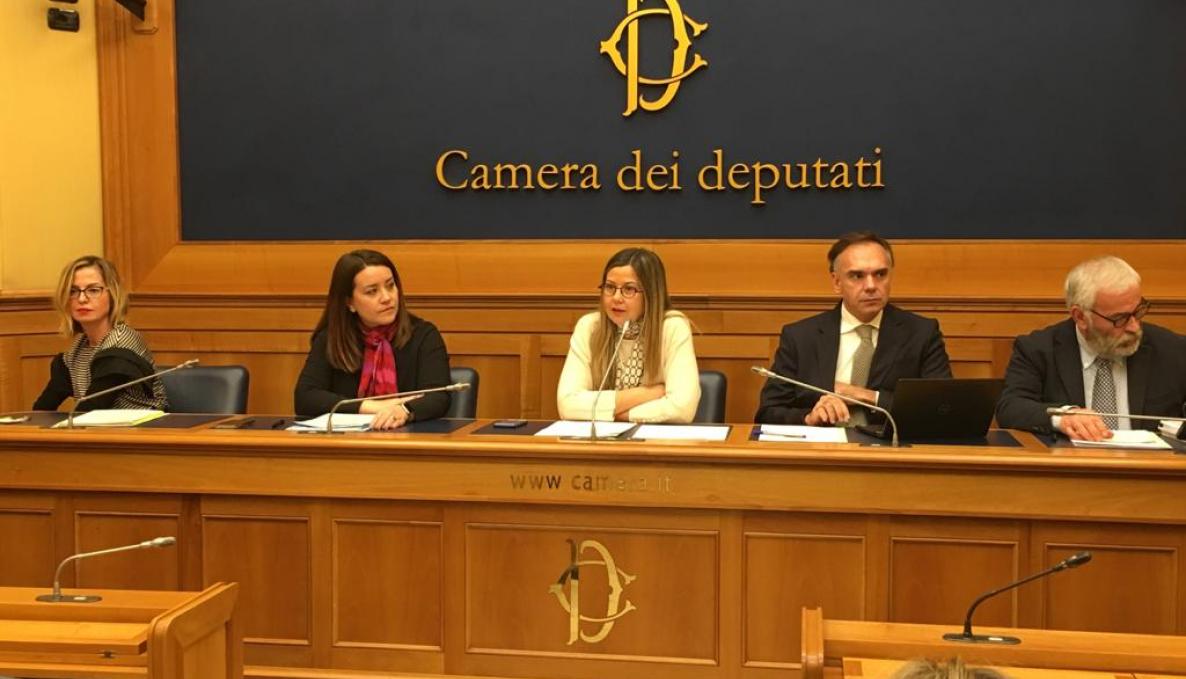Reducing food waste in the food service sector: Sant’Anna School Management Institute, Metro Italia and Fondazione Banco Alimentare announce partnership to combat food loss and waste

In Italy, there are more than 320,000 restaurants, cafes, ice cream parlors, bakeries and pastry shops: they represent the “eating out” market, the third largest in Europe, which generated 84 billion euros turnover in 2018. In Europe, it is estimated that 88 million tons of food are wasted annually all along the food supply chain. The adoption of the European Union revised Waste Framework Directive in May 2018 calls on the EU countries to reduce food waste and report data on the levels of waste. To pursue these measures and avoid food waste, METRO Italia has commissioned the Istituto Green Bocconi to investigate opportunities for food recovery, diversion of excess food to charities and the use of Doggy Bags. The research study was presented during a press conference in Parliament Lower House Camera dei Deputati.
Maria Chiara Gadda, a member of Parliament of Italia Viva party for Agriculture Development who first introduced the Law 166/2016 tackling the food waste problem, Sant’Anna School Professor Fabio Iraldo of the Institute of Management and the director of the Istituto Green Università Bocconi, Milvia Panico, Head of corporate communication and public affairs METRO Italia and Marco Lucchini, General Secretary of Banco Alimentare Onlus Foundation, who signed a memorandum of understanding aimed at cutting food waste in retail shops and the wholesale sector, discussed the results and the proposals to set up the EU-wide food reduction target for 2030.
“The Law 166 tackling the food waste issue and aimed at cutting one million tons of wasted food (reports account for five million tons every year) in 2016, took account of the circular economy standards for the first time in Italy. As a requirement to combine food recovery from organizations and companies with welfare measures, solidarity and charity – said Maria Chiara Gadda – we have recorded an increase of 25% in food donations. Enhanced tax deductions, reduction of bureaucratic burden and liability protection to donors helped assure public confidence in foundations and organizations. However, collecting and redistributing perishable (and surplus) foods across the catering and food services supply chain demonstrated to be slow processes to tackle food waste problem. Therefore, we facilitate partnerships across sectors to build a network and redistribute excess food across the country. We need to raise awareness about food waste in people’s homes, change consumer practices and, we need a change in our attitudes about the Doggy Bag”.
In the survey research, one-third of surveyed restaurants developed waste prevention strategies, food production efficiency and planning, offered smaller portions sizes and refilling options, adopted storage best practice, implemented sustainable procurement practices and offered customers a doggy bag to take away their leftovers.
The use of a doggy bag is a common practice in North-East Italy, while 68% of respondents said they do not ask for doggy bag because of food poor quality, 55% are embarrassed to ask for it, 67% would not like to carry leftovers home from restaurants. The majority of respondents (92%) would like to donate and redistribute surplus food to people in need.
“According to the results, we estimate Italian restaurants produce 3 - 5 bins (brown bins) of organic waste per week to be disposed on landfills,” says Fabio Iraldo. “84% of consumers consider food waste as a cost and a loss (84%), while 89% think waste has a significant impact on the restaurant bills.”
In Italy, 5.6 million tons of food are wasted annually across the whole supply chain. 57% of food waste is created on the farm, in food processing, in wholesale and retail sector, 43% occurs at the consumer level. METRO Italia tailored their efforts against food waste accordingly.
“METRO views itself as an equal partner with its customers (retailers, stores, hotels, restaurants, caterers, corporates, SMEs, companies and institutions, as well as self-employed professionals). METRO Italia pursue a whole range of measures to avoid food waste all along the supply chain. This Memorandum of Understanding is aimed at working toward a more resource-efficient strategy. Our first objective is the development of the restaurant food waste guide ‘Vademecum del ristoratore sostenibile’ to promote sustainable behavior in compliance with Law 166/2016and reduce wasted food through food rescue and donations. The guide will be available for the Italian members of the Horeca association (Hostellerie, Restaurant, Cafes, Catering” said Tanya Kopps, CEO of METRO Italia.
“The Banco Alimentare Onlus Foundation have also made commitments to cut food waste. We encourage food recovery organizations and implement food recovery programs to provide food to people in need”, said Marco Lucchini, Secretary General of Banco Alimentare Onlus Foundation “Per questo siamo particolarmente lieti di siglare questo accordo che porrà ulteriori argini agli sprechi alimentari. We need to promote sustainable behavior and create more sustainable attitude. Raising the consumer awareness about redistribution of surplus foods to local charities as well as focusing on responsible consumption highlight the fact that food waste is a source of business enterprise and a potential job generator.”



